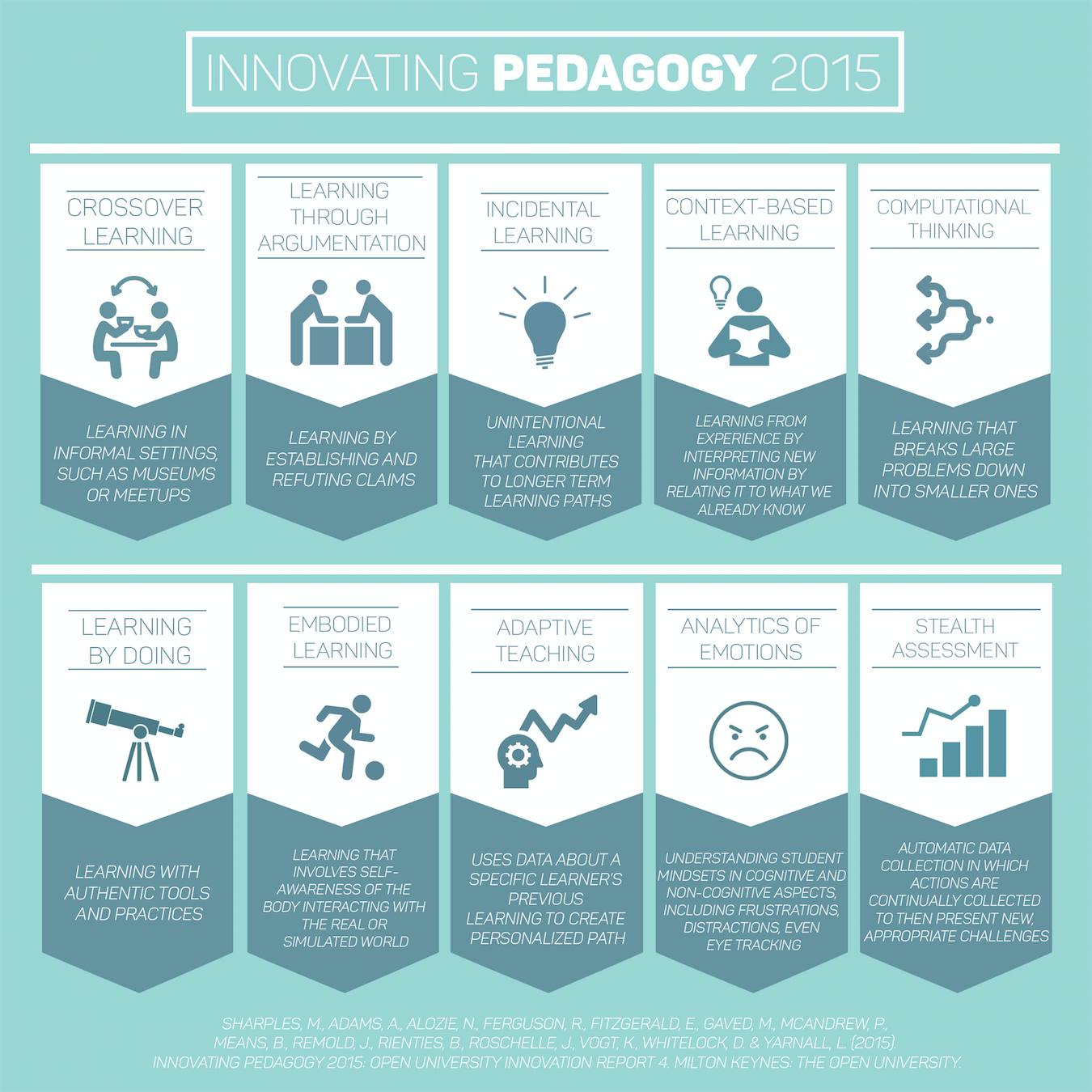INNOVATING PEDAGOGY 2021
INNOVATING PEDAGOGY 2021
open university innovation report
https://iet.open.ac.uk/file/innovating-pedagogy-2021.pdf
Enriched realities p. 16 -17
Digital Literacy for St. Cloud State University
open university innovation report
https://iet.open.ac.uk/file/innovating-pedagogy-2021.pdf
Enriched realities p. 16 -17
+++++++++++
more on future trends in this IMS blog
https://blog.stcloudstate.edu/ims?s=future+trends
10 Innovative Learning Strategies For Modern Pedagogy – TeachThought PD https://t.co/LbgndNIMhF #edchat #edadmin pic.twitter.com/cZuzZzn65y
— TeachThought PD (@TeachThoughtPD) June 20, 2018
++++++++++++
http://myweb.fsu.edu/vshute/pdf/Stealth_Assessment.pdf
https://www.chronicle.com/article/A-Stealth-Assessment-Turns/125276
Colleges no longer simply want to know what their students know, but how they think.
Higher-order thinking skills are “something that schools are paying a little bit more attention to these days,”
educators also say that paper-and-pencil examinations have limits—for one thing, knowing that you are being tested can drag down performance—and they are looking for new methods to measure skills like critical thinking, creativity, and persistence.
The 2015 Innovating Pedagogy Report proposes ten innovations that explore ways of teaching, learning, and assessment for an interactive, engaged world.
